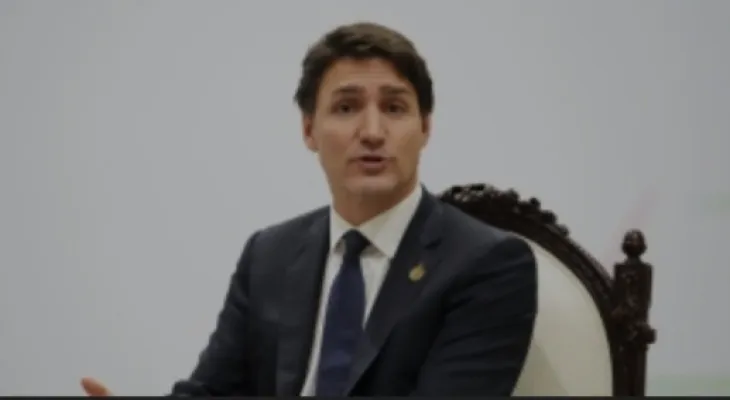Search here
Newspaper
Search here

Arab Canada News
News

Published: November 19, 2022
Prime Minister Justin Trudeau arrived in Africa to attend a gathering of French-speaking countries dealing with chaos in Haiti, which has led to rising food prices and concerns about the role of language in the digital age.
Members of the International Organization of La Francophonie will also meet this weekend in Tunisia to assess the turbulent era in geopolitics and seek to strengthen relations.
Like the Commonwealth countries, La Francophonie holds annual meetings to address everything from human rights to cultural exchange to the role of French on the international stage.
The summit is the fourth and final stop on a 10-day trip that included three major summits in Asia, including a meeting of G20 leaders. The weekend summit follows cancellations in 2020 and 2021 due to the COVID-19 pandemic.
It also comes as the Russian invasion of Ukraine has led to rising food prices across Africa, which comprises an increasing percentage of French-speaking countries.
This issue is of particular concern in North Africa, where the cost of bread was among the grievances that exploded into the Arab Spring protests from 2010 to 2012.
Frédéric Boily, a political science professor at the University of Alberta, said in a French-language interview: "There will be very important geopolitical questions, as food issues on the African side are very acute."
The Arab Spring protests began in Tunisia, leading to the ousting of then-President Zine El Abidine Ben Ali and democratic elections. But the country hosting this weekend’s summit has regressed, with Tunisian President Kais Saied suspending parliament in 2021, concentrating power and attacking key institutions.
Amnesty International and Human Rights Watch have also raised concerns about Saied’s government imprisoning journalists, dismissing judges, and giving religion a prominent role in the military. Ottawa wanted to postpone the event due to these concerns, while the Quebec government considered boycotting before deciding it was better to use the summit to build deeper relations with African countries.
On Friday, Trudeau said he would stress the importance of human rights during the summit. He told reporters in French at the conclusion of the Asia-Pacific Economic Cooperation summit in Bangkok: "I will voice my concerns about the democratic backsliding we are seeing in many parts of the world and our worries about what is happening in Tunisia."
Moments later, Reuters reported that Tunisian police fired tear gas to disperse protesters in the town of Zarzis, connected by a long bridge to the island of Djerba where the summit will be held. The protests may be related to recent outcry over the Tunisian government’s response to the deaths of its citizens in shipwrecks while migrants tried to cross the Mediterranean.
Ongoing unrest in Haiti is also likely to be a recurring topic at the summit, as the Caribbean nation suffers from brazen gangs choking off fuel supplies and essentials. The government has requested foreign military intervention to restore order, but the idea is controversial among Haitians, and no country has expressed willingness to lead such an intervention – although the U.S. government dropped Canada’s name as a potential candidate.
Comments